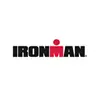
As a triathlete, your training likely keeps you in good physical shape, right? That's what I had always assumed.
For 10 straight years, I passed on the annual medical check-up offered by my doctor, given that I trained hard and I ate a healthy diet. Over the last few years, I brushed off a decline in my bike power and a slowing in my run times as old age. After all, I am in my 40's! I threw in a few other explanations for the slide in my performances: work stress, less quality training, not enough run miles, mistimed taper, not tough enough, etc. I'm good at that sort of thing.
More: Ask A Coach: Should I Weight Train?
Finally, after feeling "off" for many months, a friend prompted me to get some blood tests. Imagine my relief, but also my frustration, when everything came back normal. I didn't feel "normal" when I biked or ran. At least I didn't feel how I used to feel--was this my new normal?
It turns out that the "normal" range, specified in most blood test results is wide. While it might work for someone leading a relatively sedentary lifestyle, being at the low-end of the normal range is sub-optimal for athletes hoping to go fast in an IRONMAN triathlon. I'm no doctor, but here is what I've learned from doctors about finding optimal health as an amateur triathlete.
Get an annual check-up.
It turns out that I should not have been skipping out on that annual physical examination. The questions and tests might have been an early indicator in my so-called decline.
Dr. Kiki Silver, MD, of Boulder Peak Health PC, recommends the following physical tests in an annual check up for an endurance athlete: "For starters, I check a patient's vital signs--blood pressure, heart rate and oxygen levels. I also like to do a thorough skin exam, especially with athletes who spend lots of time outdoors. I also include heart, lung and abdominal exams for every patient." Dr. Silver explains that she is listening for murmurs in the heart, as they can be signs of anemia, thyroid, and valve conditions. In the lung exam, she listens for signs of "exercise-induced" asthma.
The benefit of the annual physical exam is that it also represents an opportunity to do preventative screening for those in an at-risk demographic. For women, this might be pap smears and breast exams, and for men, screening for testicular cancer.
Understand baseline blood tests.
I'm a data junkie who logs my heart rate, bike power, and run pace for almost all of my workouts. I've done this for many years. From a health perspective, however, all I ever measured was my weight. It was surprising to learn that basic blood tests as part of a doctor's visit could have been an early indicator in my declining health over time.
Rehal Bhojani, M.D. of Memorial Hermann IRONMAN Sports Medicine Institute in the Woodlands, Texas, suggests that if you are struggling to meet your goals, it may be prudent to include a wide range of lab tests in your next doctor's visit. He recommends blood counts, insulin levels, liver and kidney function, iron studies, B12, folate, vitamin D levels and inflammatory markers.
More: 3 Essential Tests for Endurance Athletes
Dr. Silver agrees and goes on to highlight that a complete blood count test, or CBC, can help diagnose anemia as well as illustrate other indicators of overtraining. She also likes to include a thyroid screening test, or TSH, since increased stress related to endurance training can impact normal thyroid function.
Finally, monitoring your test levels over time is particularly instructive in understanding how your body is responding to training as well as ensuring it's absorbing nutrients to keep you fit and healthy.
If you feel off, you might be right.
The best advice I've received from a doctor recently is, "if you feel anything less than yourself, there's probably something to it." Athletes often attribute new symptoms to training or life stressors, just like I did. My deviation from normal was no longer being able to run a single 8-minute mile comfortably when I used to be able to run 26.2 of them back to back!
Dr. Silver advises patients to get checked if they have any deviations from normal: "Whether it's feeling more fatigued, sleep disruptions, night sweats or weight gain or loss--truly any symptom that is new should be further evaluated," she says. She underscores the importance of not dismissing new symptoms to having "a lot going on," or aging, as they can be clues to underlying health issues.
As athletes, we all expect to maintain good health. The doctors I spoke with agreed and pointed to a few simple habits that will keep most endurance athletes feeling great.
More: Ask A Coach: What Should I Do If I Miss A Workout?
Dr. Bhojani notes that a healthy diet and adequate recovery between challenging training sessions are important, while Dr. Silver adds that sleep, functional strength training, and massage are key. Both agree that setting realistic goals for training and racing within the context of your life's priorities is probably one of the most important things we can do. Work, family, and training are all sources of stress that need to be kept in balance to remain healthy.
Jordan Blanco is a multiple-time IRONMAN finisher, four-time Kona qualifier, and writer living in San Francisco.
About the Author









Discuss This Article